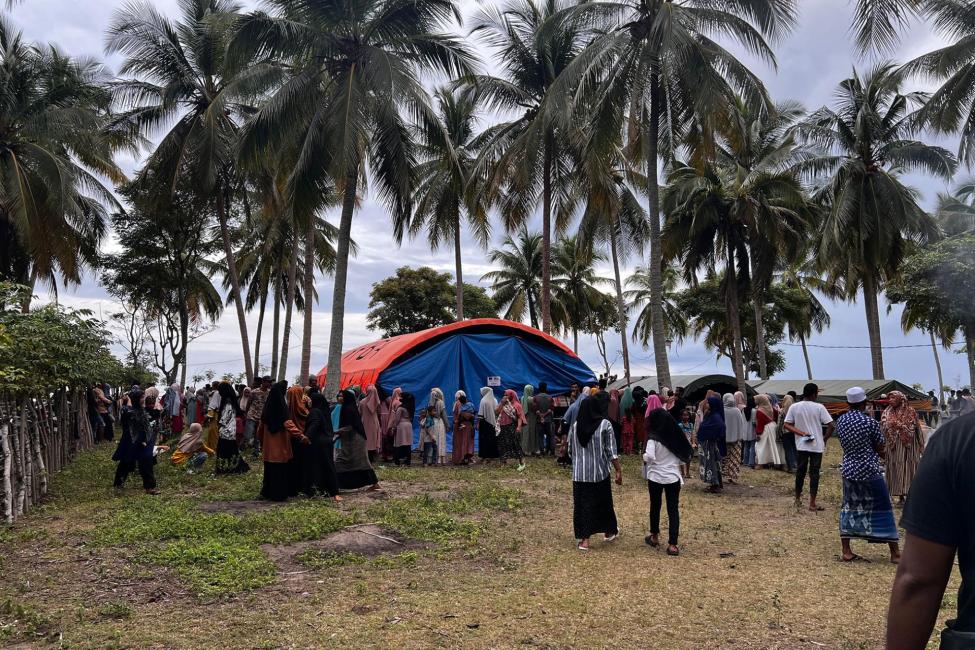-
Who we are
WHO WE AREThe International Organization for Migration (IOM) is part of the United Nations System as the leading inter-governmental organization promoting since 1951 humane and orderly migration for the benefit of all, with 175 member states and a presence in over 100 countries. IOM joined the United Nations system in September 2016.
About
About
IOM Global
IOM Global
-
Our Work
Our WorkAs the leading inter-governmental organization promoting humane and orderly migration, IOM plays a key role to support the achievement of the 2030 Agenda through different areas of intervention that connect both humanitarian assistance and sustainable development.
Cross-cutting (Global)
Cross-cutting (Global)
- Data and Resources
- Take Action
- 2030 Agenda
Mounting Death Toll in the Central Mediterranean Calls for Urgent Action
Geneva – UNHCR, the UN Refugee Agency, and the International Organization for Migration (IOM) are deeply disturbed by reports of a tragic shipwreck off the coast of Libya. Fears are that this latest incident could have claimed the lives of up to 130 people.
The rubber boat, which reportedly embarked from the Al Khoms area east of Tripoli, is said to have capsized due to bad weather and stormy seas.
The NGO SOS Méditerranée reported that the first distress call was received by authorities on Wednesday morning. SOS Méditerranée and commercial vessels searched the area on Thursday only to discover several bodies floating around the deflated rubber dinghy but no survivors.
This would be the largest loss of life recorded in the Central Mediterranean since the beginning of the year. So far in 2021 alone, at least 300 other people have drowned or gone missing in the Central Mediterranean. This is a significant increase compared to the same period last year, when some 150 people drowned or went missing along the same route.
IOM and UNHCR warn that more migrants and refugees may attempt this dangerous crossing as weather and sea conditions improve and living conditions in Libya deteriorate.
In Libya, migrants and refugees continue to be subjected to arbitrary detention, ill-treatment, exploitation and violence, conditions that push them to take risky journeys, especially sea crossings that may end up with fatal consequences. Legal pathways to safety, though, are limited and often fraught with challenges.
UNHCR and IOM reiterate their call on the international community to take urgent steps to end avoidable loss of lives at sea. This includes the reactivation of search and rescue operations in the Mediterranean, enhanced coordination with all rescue actors, ending returns to unsafe ports, and establishing a safe and predictable disembarkation mechanism.
For more information please contact:
IOM:
Safa Msehli at IOM Geneva, Tel: +41 79 403 5526. Email: smsehli@iom.int
Ryan Schroeder at IOM Brussels Tel + 32 492 25 02 34. Email: rschroeder@iom.int
Flavio Di Giacomo at IOM Rome Tel: +39.347.089.89.96 Email: fdigiacomo@iom.int
UNHCR:
In Geneva, Aikaterini Kitidi, Email: kitidi@unhcr.org, Tel: +41 79 580 8334
For Libya, Tarik Argaz, Email: argaz@unhcr.org, Tel: +216 29 961295

